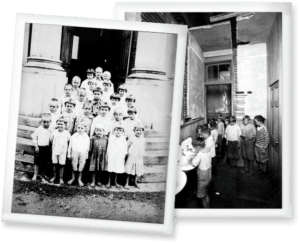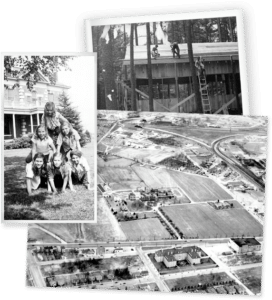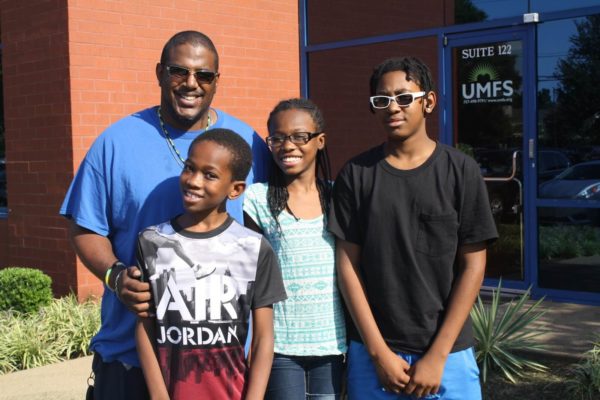Are There Orphanages in Virginia?
When many of us think of foster care or adoption, the term orphanage may come to mind. Although the concept of an orphanage is one that has been around for decades in Europe and popularized by movies, orphanages actually don’t exist in Virginia or anywhere in the United States.
Historically, orphanages were single-family homes where a handful of nurses took care of a large group of children. Run more like a dormitory than a family home, these types of facilities are no longer operational as a means to care for children.
While there are no orphanages in Virginia, there is a need for individuals and families to help at-risk children. This is where foster care comes in.
History of Orphanages in Virginia
Prior to the 1800’s, families who could not take care of a child often gave that child to a relative or neighbor to care for it.
For example, if a mother died during childbirth and the father had no ability to care for the child, it wasn’t uncommon for the child to be turned over to a relative.
Later, as immigration to the United States grew, the need for more robust care for these children developed. Illnesses in many ethnic immigrant areas often resulted in entire families leaving behind a small child. Poverty during the Great Depression also worsened this situation.
Consequently, orphanages opened to meet this demand.
These institutions were geared towards children with special needs. Ironically, most orphanages in Virginia and across the country lacked proper medical care, staff, and a loving environment necessary to be successful. This forced children to live in a less than ideal situation with small rooms and poor conditions.
How Foster Care Replaces Orphanages in Virginia
 During the mid-1800’s, the foster care system began taking shape. This so-called “Orphan Train” involved children being shipped by railway to the western regions of the country. From there, families who were vaguely prescreened could care for the children.
During the mid-1800’s, the foster care system began taking shape. This so-called “Orphan Train” involved children being shipped by railway to the western regions of the country. From there, families who were vaguely prescreened could care for the children.
By the 1900’s, newer, more modern solutions for child welfare were created, and by 1930 Orphan Trains no longer existed. By the time World War II ended, there were few traditional orphanages in Virginia and social services for children became more community-focused.
 The mid-1950’s marked the major shift as more children were living in foster homes than in orphanages.
The mid-1950’s marked the major shift as more children were living in foster homes than in orphanages.
In the 1960’s, foster care became a government-funded program for children. At this point, the traditional model of an orphanage is no longer present in the United States.
Foster Homes: The Better Alternative To Orphanages

With government funding in place, foster homes have taken off as the ideal option. An at-risk child is placed in a traditional, structured family environment. They receive the same care as a child born to that family, providing for a strong ability to develop along the same path and with access to the same benefits.
It’s important to recognize that foster care aims to provide the best possible solution for children who otherwise do not have a home that is safe or nurturing. Yet, just because these programs are designed to pay for children’s care doesn’t mean enough options are available. In fact, there is currently a significant shortage of foster parents in Virginia and across the United States.
With the rise of substance abuse in adults such as alcoholism, opioid addictions, and heroin, there are more children than ever that need a place to call home. While social services are available to meet the child’s needs, arriving at the destination of a loving home environment can be a long journey for a child.
Fostering a Child in Virginia
Fortunately, now there are far more resources and tools available to help support both the child in need and the parent willing to open up their home.
By becoming a foster parent, you are providing an opportunity for at-risk children to receive support and assistance until they return home, are placed with a relative or are adopted. Although orphanages in Virginia no longer exist, there is still a very real demand for foster parents. With every child that enters into the foster care system, there is a need to offer them a high level of care and attention.
Becoming a Foster Parent
If you’re beginning the research and process of becoming a foster parent in Virginia, one of the first steps is to obtain the required training.
This process includes learning about the demands in your area, ensuring your home is safe and accommodating for a child, and receiving education on how to interact with and care for the child.
In many cases, children in foster care have developmental delays or emotional trauma they need to work through. As a foster parent who can offer the right environment, you can provide the positive change the child needs to overcome their challenges.
Foster a Child Through UMFS
When you partner with UMFS, you’ll soon find a wealth of support and resources are available to make this a successful, fulfilling journey for both you and the child.
Additionally, we’ll guide you through understanding the current foster care system as well as the training required and compensation provided.